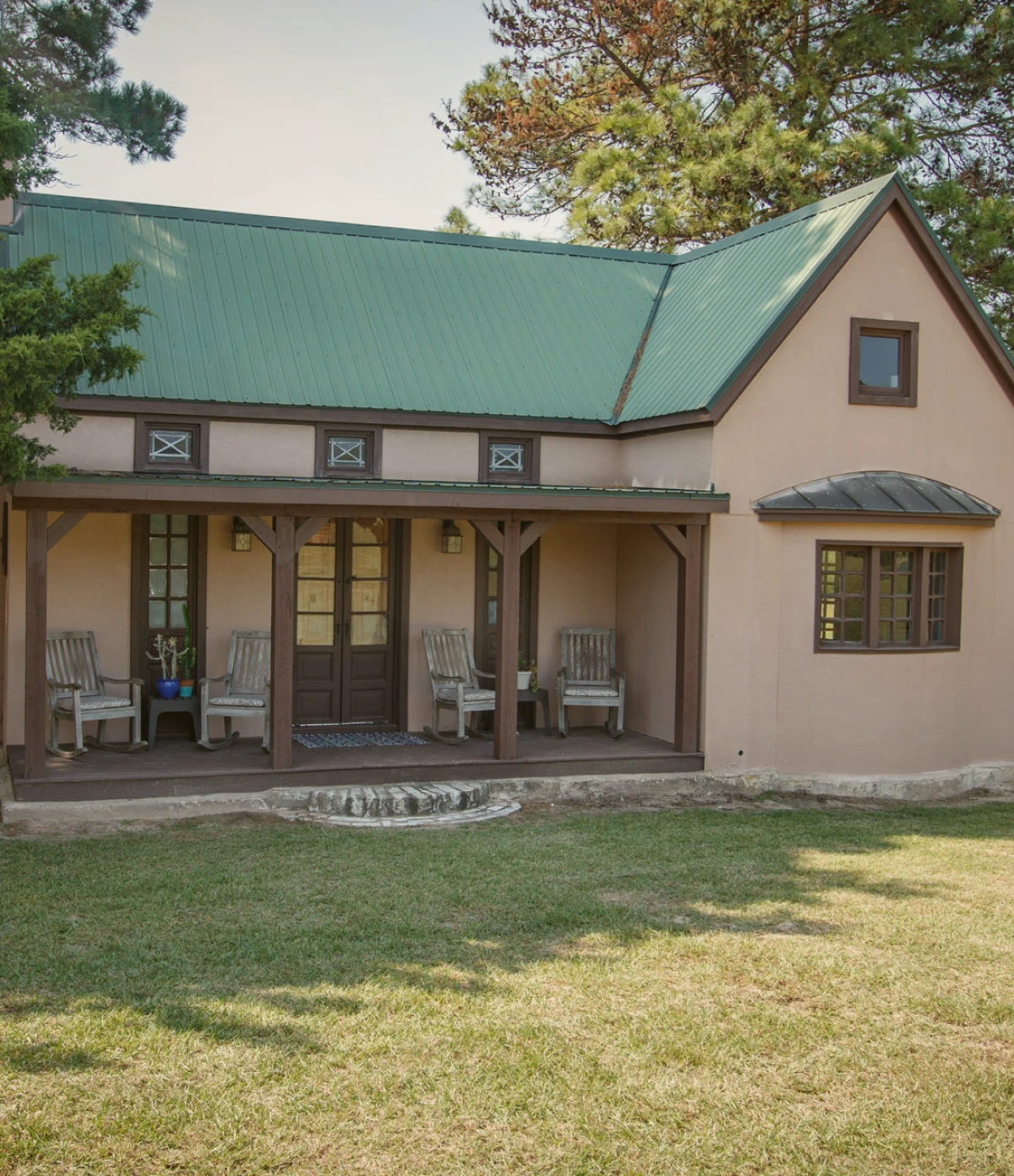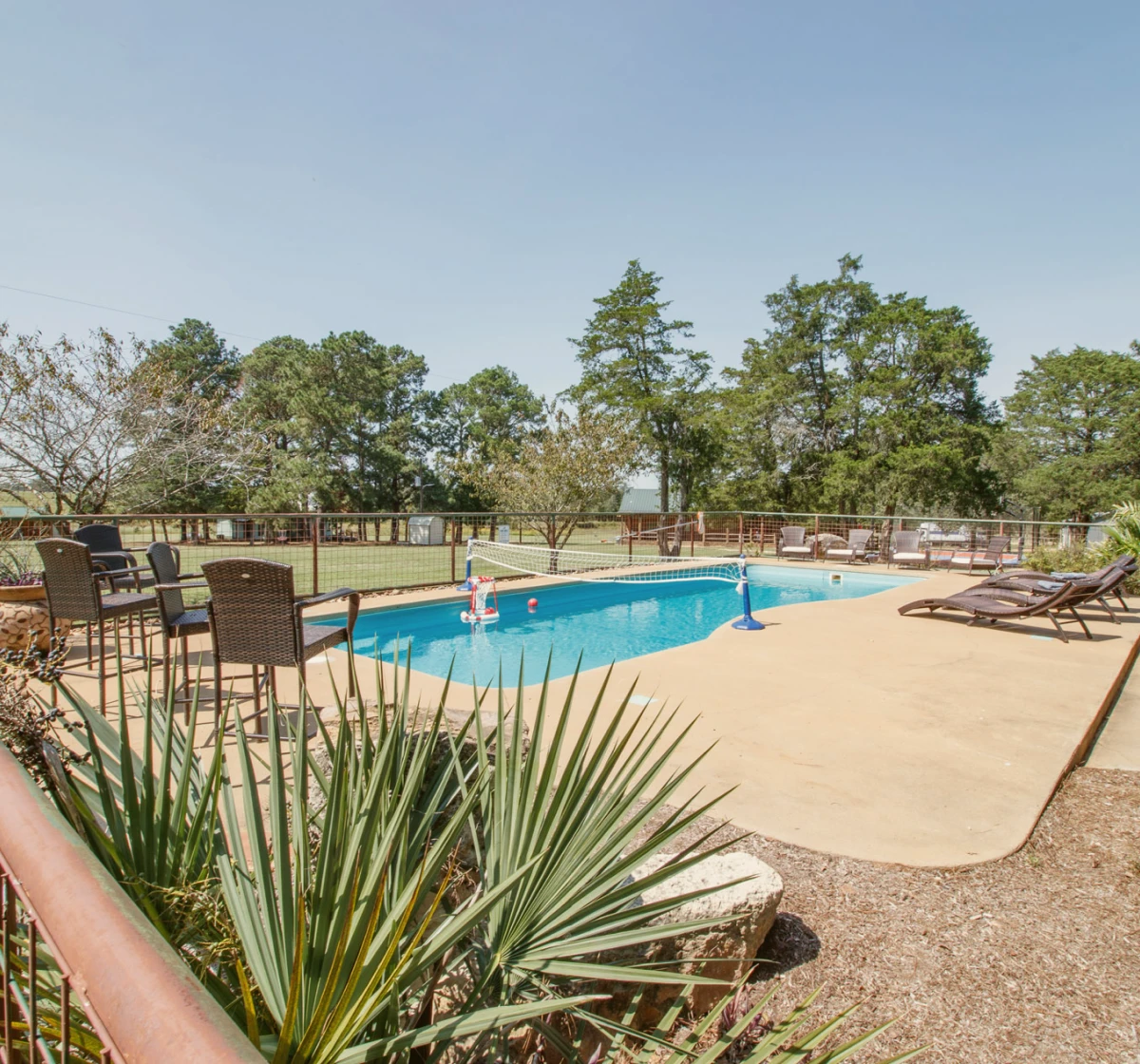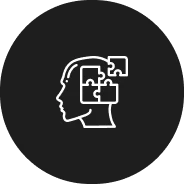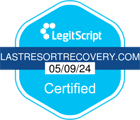We work with insurances. Verify yours now
Ongoing Support | Men’s Sober Living

Sober living homes provide a crucial bridge between inpatient care and independent living for those in recovery treatment programs from substance use disorders. These residential facilities offer a structured, substance-free environment where residents can solidify their sobriety skills while gradually reintegrating into daily life.[1]
In most Austin sober living homes, residents typically share living spaces and responsibilities, creating a community of mutual support and accountability.[2] While less intensive than inpatient treatment, these structured homes often have rules such as curfews, mandatory house meetings, and random drug testing to maintain a recovery-focused atmosphere.
Sober living residents are usually required to work or attend school, participate in on-site outpatient addiction treatment or support groups, and contribute to household chores. This combination of independence and structure helps individuals build confidence, develop life skills, and establish healthy routines crucial for long-term recovery.[3]
Sober living in Austin, Texas, can last from a few months to over a year, depending on individual needs and progress, providing a safe, supportive stepping stone to fully independent, substance-free living.

Our sober living houses in South Austin, Texas, work by providing a transitional environment that bridges the gap between intensive treatment and independent living. The effectiveness of sober living environments stem from several important factors:[4]
Living with others in recovery creates a built-in support system, reducing isolation and providing mutual encouragement.
Rules and routines help residents develop healthy habits and time management skills essential for maintaining sobriety.
Residents can practice recovery skills in real-world situations while still having a safe, substance-free home to return to.
Encouragement to work or volunteer helps residents rebuild a sense of purpose and community connection.
Regular drug testing and house rules reinforce commitment to sobriety.
Shared responsibilities foster life skills crucial for independent living.
Longer stays allow time for new habits and coping mechanisms to become ingrained.
This combination of structure, support, and real-worldexposure allows individuals to solidify their recovery skills, reducing the risk of relapse as they transition back to independent living.
Sober living programs play a vital role in supporting individuals who are recovering from substance use disorders, particularly those with histories of homelessness, incarceration, and lack of social support for sobriety.[5] These individuals are especially vulnerable to relapse without access to long-term, community-based services that promote and maintain sobriety.
Research has shown that sober and transitional living programs can have a positive impact on the lives of their residents. One study found positive longitudinal outcomes for 300 individuals living in two different types of sober living homes, suggesting that these programs might be an effective option for those in need of alcohol-free and drug-free housing.[6] Improvements were noted in various areas, including reduced alcohol and drug use, decreased arrests, fewer psychiatric symptoms, and increased employment rates.
Furthermore, studies have shown that those living in residential recovery homes generally make significant improvements in multiple areas of functioning.[7] Residents who achieve and maintain complete abstinence tend to have particularly good outcomes, highlighting the importance of fostering a supportive environment that encourages and reinforces sobriety.
Overall, these findings underscore the value and efficacy of sober living homes in Austin, Texas, promoting lasting recovery and improving the lives of individuals struggling with addiction.

For individuals in recovery seeking to maintain their sobriety while transitioning back to everyday life, our South Austin sober living homes provide the ideal environment. Our high-accountability approach combines structure with independence, creating a balanced approach to recovery that supports residents on their journey to recovery.
The Last Resort’s recovery services offer more than just housing—they provide a comprehensive addiction recovery plan tailored to each resident’s unique needs. By fostering a sense of community among like-minded individuals, we establish a strong foundation necessary for building a sustainable, sober life.
Residents benefit from regular attendance at recovery meetings, including 12-step meetings, which reinforce their commitment to recovery. This structured approach helps adults in recovery maintain their focus on achieving long-term sobriety while navigating the challenges of reintegration into society.
The Last Resort offers a supportive living environment where residents can focus on their recovery, free from the distractions and temptations of their previous lifestyle. Our programs are integrated into the local recovery community, providing residents with access to a wide range of resources and support networks throughout Travis County.
Our alcohol- and illicit drug-free environment maintains standards of safety and accountability through regular testing. This consistent monitoring helps reinforce abstinence while providing residents with the structure needed to build healthy habits.
What sets our approach apart is the focus on addressing both addiction and mental health conditions. Our recovery program acknowledges that successful completion of treatment often requires addressing co-occurring disorders, ensuring that residents receive appropriate care for their needs.

For those struggling with drug addiction and active addictions, The Last Resort offers several levels of care that can complement sober living arrangements. Our Partial Hospitalization Program (PHP) provides an alternative for individuals who require more support than an Intensive Outpatient Program (IOP) but do not necessitate inpatient or residential treatment.
Our structured environment fosters accountability while enabling personal growth. Through participation in our comprehensive treatment programs, individuals learn to overcome the challenges of drug and alcohol dependency in a supportive community of peers who understand their struggles.

The Last Resort offers a unique combination of clinical services with our outpatient campus in Austin and our residential services in Smithville. This arrangement allows clients in our programs to benefit from the best of both worlds—clinical excellence in an accessible urban setting and the healing benefits of our rural campus, including equine therapy.
Our 12-step program is an integral part of our approach to recovery, offering a proven framework for achieving and maintaining sobriety. Through participation in 12-step meetings and the development of supportive relationships, clients build the tools and network necessary for lasting recovery.
Click on the links below to learn about the Sober Living care staff at The Last Resort.
We’re excited to share the positive experiences of our other community members, many of whom were where you are today – overwhelmed and uncertain. These are their stories. What will yours be?
The Last Resort offers a variety of evidence-based and holistic care modalities ensuring our clients receive comprehensive support throughout this crucial phase of their recovery journey.
A structured approach promoting abstinence and personal growth through mutual support. Participants progress through 12 steps, share experiences, and foster accountability within a recovery community.
Encourages acceptance of thoughts and feelings while committing to behavior changes aligned with personal values. Promotes psychological flexibility and meaningful life engagement.
Provides comprehensive information on substance use disorders and recovery strategies. Empowers you to make informed decisions about your health and recovery journey.
Addresses negative thinking patterns and behaviors associated with addiction. Helps people identify, challenge, and change destructive thought processes and modify harmful behaviors.
Focuses on emotion regulation, distress tolerance, interpersonal effectiveness, and mindfulness skills. Effectively supports those with intense emotions or co-occurring disorders.
Promotes emotional growth and self-awareness through interactions with horses. Participants learn about themselves, fostering trust, communication, and emotional regulation.
Active, hands-on approaches involving art, music, role-playing, or outdoor adventures. Addresses issues through direct experience and reflection.
Collaborative approach to enhance communication, resolve conflicts, and build a supportive recovery environment. Addresses family dynamics related to addiction.
Structured physical exercise programs designed to improve overall health, reduce stress, and support recovery. Regular exercise can boost mood, sleep quality, and provide a healthy stress outlet.
A supportive setting where individuals share experiences, challenges, and successes with peers in recovery. Provides validation, diverse perspectives, and opportunities to practice interpersonal skills.
An intensive workshop focused on emotional healing and personal growth. Involves guided exercises, reflection, and group support to address emotional issues and promote self-discovery.
One-on-one sessions for personal exploration, goal-setting, and addressing specific issues. Offers a safe space for deep, individualized work on recovery and personal growth.
Practical training in essential skills for daily life and sobriety. Topics may include financial management, job readiness, communication, and stress management, aiming to support independent, substance-free living.
A client-centered counseling style to resolve ambivalence and enhance motivation for change. Explores and strengthens personal motivations for recovery, promoting lasting behavior change.
Therapeutic role-playing and storytelling to gain insight, explore emotions, and practice new behaviors in a safe environment.
A goal-directed approach emphasizing strengths and solutions. Aims for rapid change by helping individuals envision a preferred future and take concrete steps toward it.
Combines yoga practices and concepts to promote physical, mental, and emotional well-being. Reduces stress, increases body awareness, and supports overall recovery through physical postures, breathing exercises, and meditation.
No two recovery journeys are alike, and there’s no single method to address every instance of substance use disorders, mental health issues, or co-occurring diagnoses. That’s why our focus is on delivering individualized care tailored to each client’s unique needs and circumstances.
When clients arrive on our 55-acre campus, they undergo an in-depth assessment that determines their ideal level of care. Our treatment team thoroughly evaluates the results to design a personalized treatment plan.
As clients advance in their recovery, we regularly review their needs and modify the level of care accordingly. When a client reaches the goals outlined in his treatment plan or shows notable stability in his recovery, we help them transition to a less intensive level of care. This adaptable approach ensures that each man receives the appropriate support at each stage, whether they require the structure of residential treatment or are prepared for a step-down program.

A multidimensional biopsychosocial assessment aligned with ASAM Criteria[8]
The client's personal goals and perceived needs
Input from our multidisciplinary treatment team
Continuous evaluation of progress and
response to treatment
We’re here to be the solution you seek and empower you to pursue the healing you need. Reach out for help today and step forward in confidence.
Paying for treatment should never be a barrier to recovery and healing. There are several options available that do not put your family in financial jeopardy. The Last Resort is an in-network provider that works with most insurance companies.








Come experience a healing adventure like none other. Our expansive and secluded men’s-only ranch sits on 55 acres of central Texas beauty and is a tranquil sanctuary designed to promote rest, reflection, and recovery.
From rolling hills and ancient tree groves to warm ranch-style accommodations, you’ll feel right at home. You’ll enjoy a full range of amenities and experiences, including an outdoor pool oasis, a fitness studio, and a fully-stocked horse barn.
Our secondary location is a comfortable, modern facility with shared and private spaces that is home to all of our outpatient services. This center is conveniently located in south Austin off Menchaca Rd.
When drug or alcohol addiction takes root in your life, it colors everything you do, how you show up at work, at home, and for yourself. Your family often feels the worst of it. You know this is not what you had in mind for your life. There has to be a healthier way to manage your emotional distress and overcome the challenges you face.
As the opioid epidemic has continued to explode, so has the treatment industry. Unfortunately, not all are of the same quality or the same caliber.
Accredited status for our addiction treatment center confirms that the services we offer meet or exceed the official standards of practice established by the state and other governing organizations by passing a series of detailed assessments.
Understanding accreditation affords you and your loved ones the confidence to pursue long-term recovery with renewed peace of mind.




If you or a loved one is battling alcohol or drug addiction, you’re in the right place. Even if you’ve tried other treatment programs or think you’re at the end of the line, this is the community you need to thrive. We can’t wait to facilitate your recovery and be part of your success story.
Many sober living homes in Austin support residents in pursuing employment or educational opportunities. They often encourage residents to engage in productive activities that promote personal growth and stability. Some sober living environments may have specific guidelines regarding work or school schedules to ensure residents maintain a balanced lifestyle conducive to recovery.
Sober living environments typically offer various support services to help residents maintain sobriety and achieve personal goals. These may include:
These services are designed to foster a supportive and structured environment that promotes sustained recovery and personal development.
Relapse is a recognized part of the recovery process, and sober living homes in Austin are prepared to respond with support and guidance. The goal is to help individuals learn from the experience, regain focus on their recovery journey, and continue building a sober lifestyle within the supportive community of the sober living home.
[1] Best Practices for Recovery Housing. (2023). https://store.samhsa.gov/sites/default/files/pep23-10-00-002.pdf on July 3, 2024
[2] Polcin, D. L., Henderson, D., Trocki, K., Evans, K., & Wittman, F. (2012). Community context of sober living houses. Addiction Research & Theory, 20(6), 480–491. https://www.ncbi.nlm.nih.gov/pmc/articles/PMC3902663/ on July 3, 2024
[3] Information, N. C. for B., Pike, U. S. N. L. of M. 8600 R., MD, B., & Usa, 20894. (2020). Chapter 5—Strategies for Working With People Who Have Co-Occurring Disorders. In www.ncbi.nlm.nih.gov. Substance Abuse and Mental Health Services Administration (US). https://www.ncbi.nlm.nih.gov/books/NBK571013/ on July 3, 2024
[4] Wittman, F. D., & Polcin, D. L. (2014). The Evolution of Peer Run Sober Housing as a Recovery Resource for California Communities. International Journal of Self Help and Self Care, 8(2), 157–187. https://www.ncbi.nlm.nih.gov/pmc/articles/PMC4248351/ on July 3, 2024
[5] Polcin, D. L., Korcha, R., Bond, J., & Galloway, G. (2010). What Did We Learn from Our Study on Sober Living Houses and Where Do We Go from Here? Journal of Psychoactive Drugs, 42(4), 425. https://www.ncbi.nlm.nih.gov/pmc/articles/PMC3057870/ on July 3, 2024
[6] Polcin, D. L., & Henderson, D. M. (2008). A Clean and Sober Place to Live: Philosophy, Structure, and Purported Therapeutic Factors in Sober Living Houses. Journal of Psychoactive Drugs, 40(2), 153–159. https://www.ncbi.nlm.nih.gov/pmc/articles/PMC2556949/ on July 3, 2024
[7] Polcin, D. L., Mahoney, E., Witbrodt, J., Subbaraman, M. S., & Mericle, A. A. (2023). Outcomes Among Sober Living House Residents Who Relapse: Role of Recovery Capital. Journal of Psychoactive Drugs, 1–9. https://www.tandfonline.com/doi/full/10.1080/02791072.2023.2225502 on July 3, 2024
[8] American Society of Addiction Medicine. (2022). About the ASAM Criteria. American Society of Addiction Medicine. https://www.asam.org/asam-criteria/about-the-asam-criteria on July 3, 2024
As part of our commitment to clients and families, we share high-quality resources, industry-related news, and practical education with those in our circle of influence. We hope these resources equip and inspire those who read them to take positive, healthy action.
The goal of all content is to empower and equip without compromise. Every resource The Last Resort creates is not supported by sponsorship or advertisers and is therefore free of bias and murky agendas.
All of our educational materials are produced or reviewed by the team at The Last Resort. We staff and consult with subject matter experts and industry professionals to ensure all that is shared is accurate and accessible.
Our admission specialists are ready to talk with you 24/7 about starting the journey. We always treat each caller with the utmost respect, detailing your treatment options and respecting your confidentiality.
Based on your assessment, we’ll work together to create a customized treatment plan that addresses your needs, ensuring you have the support and resources necessary to achieve your goals.
The Last Resort is in-network with most major insurance companies. Fill out the form below to verify your healthcare coverage within the hour.
We’ll welcome you to our campus and start laying the groundwork for a successful, long-term recovery.